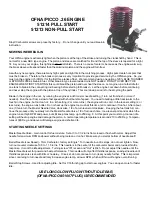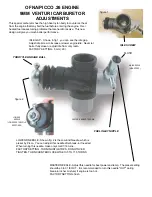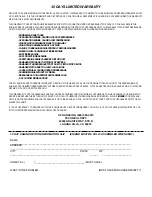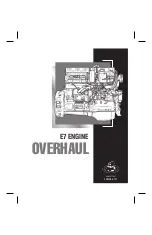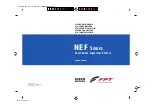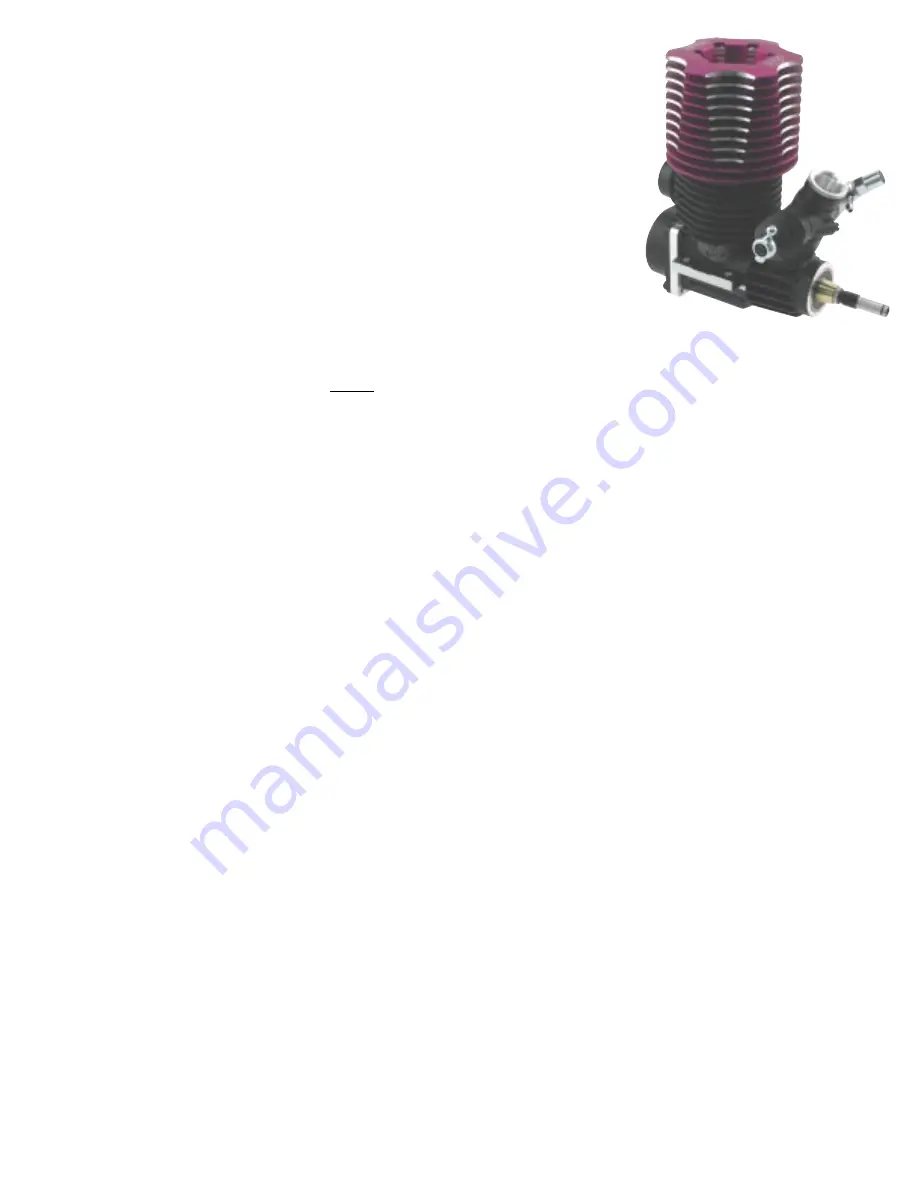
Stop!! Carburetor screws are preset by factory.... Do not change until you read break-in
instruction.
NEW ENGINE BREAK-IN
Your OFNA engine is extremely tight when the piston is at the top of the stroke and turning the crankshaft by hand. This is
normal for a new ABC type engine. The piston and sleeve are matched for fit and the top of the sleeve is tapered for a tight
fit. As you run your engine, this tightness should diminish. There is no cause for alarm, because as the engine warms up,
the brass sleeve will expand faster than the aluminum piston and the engine will turn freer.
As with any new engine, there are many high spots and tight fits in the matching process. High spots create hot spots that
must be broke-in. Therefore, the break-in process is very important to provide good service by the OFNA engine. So, you
must run the engine rich (COOL) for the first three tanks of fuel. We recommend using one gallon of 20% BLUE THUNDER
or BYRON'S 2000 as break-in fuel. Other break-in type fuels or added oil is NOT needed. DO NOT OVER REV THE
ENGINE WHEN FIRST STARTING, this could break the piston and over heat the sleeve. Let engine run at a fast idle for
one tank to break-in the connecting rod bearing before starting full break-in. Let the engine cool down before continuing
and never stop the engine with the piston at top of the cylinder. This cool down period is for heat cycling the parts.
Break-in the engine in the car, by running the engine at a rich master needle setting (1 turn out from flush or more if
needed). Run the car from a slow to fast speed with short bursts of speed. You need to buildup a little heat (warm to the
touch) in the engine, but not too hot. In a rich setting (2 or more turns), the engine will run cold. In the leaner setting (2 or
less turns), the engine runs hotter. Do not heat up the engine too much at this time, let it cool down if too hot. After about
one (1) tank, turn the Master Needle Valve, clock wise, 1/8 of a turn leaner or clockwise. Keeping the fuel tank full, con-
tinue the process until you slowly turn the Master Needle Valve, 1/8 of turn each time, too a leaner point and at which the
engine runs at high RPM and power, but still keep max temp. up to 250 deg. F. At this point you must stop, too lean of a
setting will heat up engine and damage the piston. A normal operating temperature is around 210 to 250 Deg. Tempera-
tures of 300 Deg. and above will damage engine and shorten life.
STARTING NEEDLE SETTINGS
Master Needle Valve - main control for fuel mixture. Set at 3 to 3 1/2 turns from closed or flush with collar. Adjust this
needle for maximum RPM and power without being too lean or too hot. Make sure you start at bottom of needle seat!!
Barrel Needle (Low Speed) - 7mm Carburetor, factory setting is " Turn needle in until is stops, do not over tighten. Now,
turn out counter clockwise 10.5 to 11.5 turns. This needle is in the center of the carburetor barrel and provides throttle
response. It is not the idle adjustment. Turning screw "IN" is Lean and "Out" is Rich. Do not adjust this needle until the
Master Needle is set for power and best performance. This needle will only effect throttle response, so adjust needle until
throttle response is clean with little or no delay. Once set, do not continue to turn (lean) needle further. This is important
since continuing to turn needle will only increase engine temp, at lower RPM, which will throw off engine overall tuning.
Barrel Stop Screws - Used for adjusting Idle. Set for 1/16th inch gap to start new engines. You can open more for faster
idle.
USE LONG GLOW PLUG WITHOUT IDLE BAR,
(OFNA/PICCO #51007 PLUG) IS RECOMMENDED
OFNA/PICCO .26 ENGINE
51214 PULL START
51213 NON-PULL START

